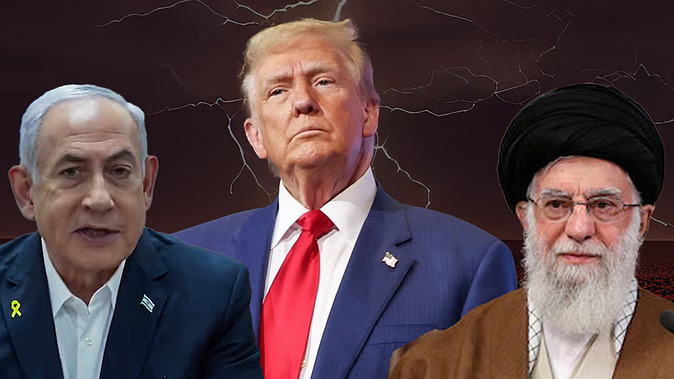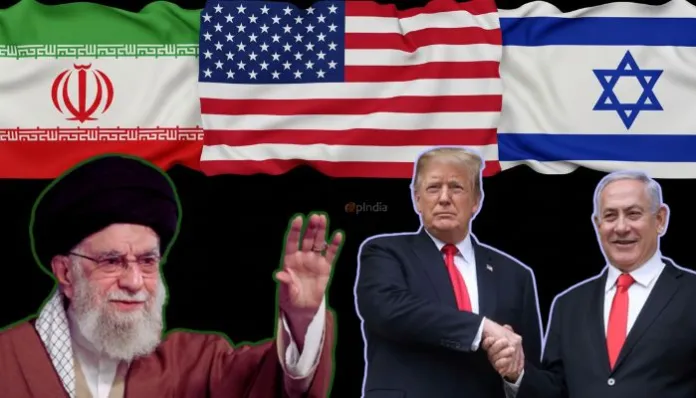By :- Shruti Tiwari
Tensions between Iran, Israel, and the United States have escalated following a dramatic new development: a senior Iranian cleric has issued a fatwa (religious decree) against former U.S. President Donald Trump and Israeli Prime Minister Benjamin Netanyahu, labeling them “enemies of God.”
The fatwa, issued by Iran’s top Shia cleric Ayatollah Naser Makarem Shirazi, calls upon Muslims worldwide to ensure that both leaders “repent for their actions” and refrain from offering them any form of support or cooperation.
Background of the Conflict
The latest conflict began on June 13, when Israel launched “Operation Rising Lion” targeting Iranian military and nuclear sites. In retaliation, Iran initiated “Operation True Promise 3,” launching missiles and drones at Israeli infrastructure.
The conflict quickly expanded as the United States intervened, launching precise strikes on Iranian nuclear facilities in Fordow, Natanz, and Isfahan. Following this, Iran responded by targeting U.S. military bases located in Qatar and Iran.
A ceasefire was brokered later, with Donald Trump announcing the Iran-Israel war truce on Tuesday (Indian Standard Time), following days of escalating attacks involving missile strikes and drone warfare.

The Fatwa Details
Ayatollah Shirazi’s fatwa claims that any person or government threatening Islamic leaders or scholars is to be considered a “mohareb” — someone who wages war against God. According to Iranian law, such individuals can be punished with death, crucifixion, amputation, or exile.
The fatwa explicitly prohibits Muslims or Islamic states from supporting or aiding Trump and Netanyahu in any form, calling it “haram” (forbidden). It urges Muslims to act in a way that compels the two leaders to repent for their “crimes” against Islam and humanity.
“Anyone who fulfills this religious duty, even at great personal risk or cost, will be considered a warrior in the path of God,” the fatwa states.
Global Reactions Awaited
While no official response has been made yet by the U.S. or Israeli governments regarding the fatwa, international observers warn that this could further inflame religious and geopolitical tensions in the region. The invocation of religious decrees against global political figures is rare and carries serious implications for regional security and diplomatic relations.
This development comes amid rising instability in the Middle East, with many countries calling for restraint and urging all parties to return to the negotiation table.

